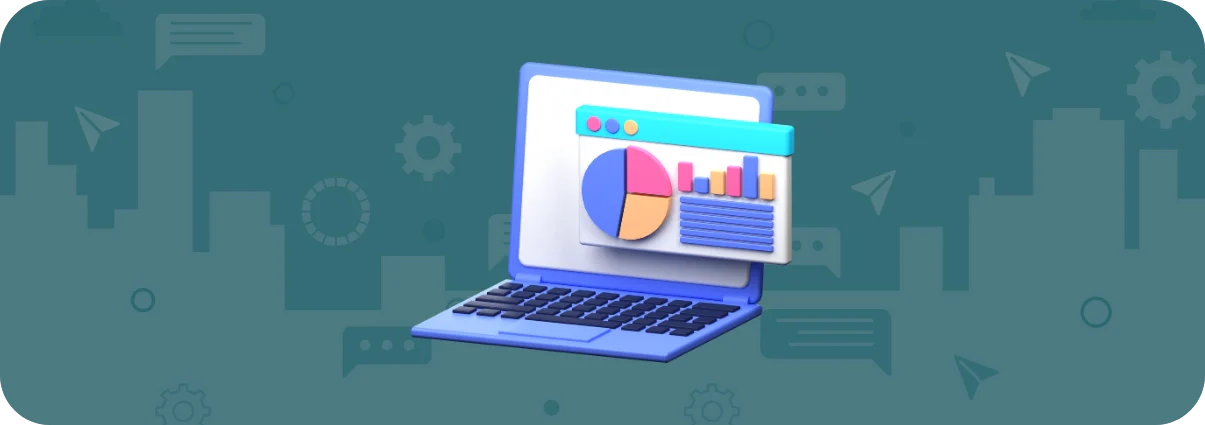Yes, as long as you choose the right specifications and supplier, refurbished laptops won’t cause any issues for your existing IT setup.
Many SMEs work with a fixed Windows image, specific network configurations or MDM tools (like Intune or Workspace ONE). Refurbished laptops can be fully compatible, provided the devices meet certain technical requirements such as BIOS access, TPM 2.0, compatible drivers and solid hardware. If you pay attention to that, a rollout can go just as smoothly as with new devices.
BIOS settings and OEM locks: what should you watch out for?
Refurbished laptops should never come with a BIOS password or OEM lock – these must always be cleared or disabled by the refurbisher.
If there's still an admin lock on the BIOS or UEFI menu, you as IT admin can’t change settings like boot priority or Secure Boot. PXE-based image installations will also be blocked. A reliable refurbisher removes all enterprise locks, provides full BIOS access and clearly confirms this. Make sure to ask in advance, especially if you manage image deployment yourself.
TPM 2.0 and BitLocker: are refurbished devices ready for encryption?
Most professional refurbished laptops are equipped with a TPM 2.0 chip by default, and are thus suitable for disk encryption using BitLocker.
TPM (Trusted Platform Module) is crucial for secure encryption in a business environment. Since Windows 11, TPM 2.0 is even a minimum requirement. Fortunately, most business-class models from recent series (e.g. Dell Latitude, HP EliteBook, Lenovo ThinkPad) come with it by default. B2B refurbishers don’t sell consumer models without TPM, but it’s always wise to double-check the specifications.
Can I roll out my standard Windows image without issues?
Yes, as long as the device is compatible with your image setup (e.g. MDT or SCCM), there’s no problem.
Make sure your refurbisher supplies laptops without a preloaded OS or with a clean Windows installation. Some suppliers even offer to preinstall your image if you provide it. What matters most is that all drivers are available and no unnecessary bloatware is preinstalled. Also check whether the refurbisher can provide the same model and chipset to avoid driver inconsistencies.
What if I purchase in phases and want to maintain uniformity?
Choose a supplier who offers devices in batches or keeps the same series available over time, so you can re-order later if needed.
In many SMEs, devices are not replaced all at once but gradually. If you want to maintain a uniform IT environment, consistency is key. Some refurbishers offer so-called “fleet deals” so you can order identical models over time. Ask in advance about availability of series, production years and form factors to ensure future compatibility.
What about drivers, firmware and updates?
Business refurbished laptops usually come from product lines with long-term driver and firmware support from the manufacturer.
HP, Dell and Lenovo often offer up to 5 years of support for firmware and drivers of their business models. This makes the devices more stable and easier to integrate into existing environments. Check whether your refurbisher uses professional models that still receive this support – like HP EliteBook, Dell Latitude or Lenovo ThinkPad. This helps you avoid compatibility issues and continue pushing updates automatically through your management system.
Can refurbished laptops be added to our MDM system?
Yes, as long as the devices come with a valid Windows OS and TPM 2.0, they can be integrated into Intune, Workspace ONE or other MDM platforms without issues.
Modern MDM systems detect the device type and serial number and then add it to your managed environment. Refurbished laptops behave exactly like new ones in this context – provided the initial setup (OOBE) is clean. Let your refurbisher know you use MDM so they can deliver the device in a 'ready-to-enroll' state.
What about keyboard layout and power adapter?
Make sure you receive Belgian or international QWERTY keyboards and not imported devices with unfamiliar layouts or chargers.
Some refurbishers supply laptops from foreign markets, with AZERTY layouts from France or unusual chargers. This isn’t a disaster, but it can cause frustration for end users and extra work for your IT team. Professional refurbishers provide standard Belgian or international QWERTY keyboards, EU power plugs and solid chargers – often original or new third-party models with CE marking.
Should I choose Windows 10 or Windows 11?
If your image and applications are compatible, Windows 11 is the logical choice – but Windows 10 is still a safe option until October 2025.
Refurbished laptops with 8th Gen Intel processors or newer support Windows 11 smoothly. Many companies still run Windows 10 due to compatibility needs or because their image is built on it. It’s best to choose devices that support both, so you can transition smoothly when the time is right. Some refurbishers let you choose the OS during purchase.
The right partner makes all the difference
Refurbished laptops are no obstacle for an existing IT environment – as long as you work with a reliable supplier who understands B2B requirements.
For Doordachte Daan, compatibility is not a side issue, but a basic requirement. By paying attention to BIOS access, TPM 2.0, uniform models, driver support and integration options, you can confidently roll out refurbished laptops in your SME. A good refurbisher will support you in this, provide clear technical specs, and offer help with rollout and setup if needed.







